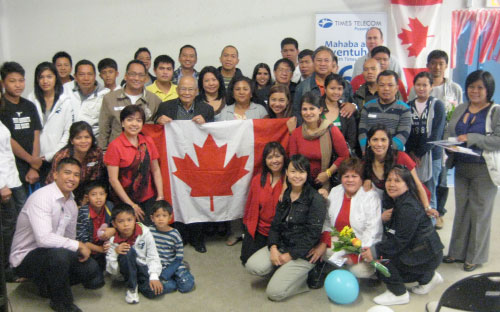Fewer caregivers get Canadian permanent residency because of new hurdles

Filipino caregivers: It’s harder for them now to transition to permanent resident status. ONKARINSTITUTE
TORONTO – What the government called “new pathways” for immigrants have reduced the number of foreign caregivers becoming permanent residents.
Immigration Department data show that about 20 percent, or 555 caregivers out of 2,730 applicants, were granted permanent residency in the country in the three years under the former Conservative government, which imposed the new language and post-secondary education requirements in November 2014.
Under the old live-in caregiver program, an average of 8,000 caregivers received permanent status every year between 2006 and 2014 after they fulfilled the two-year live-in employment commitment and got their medical and criminal clearances, according to TheStar.com.
The Conservative rule changes caused the transition rate from temporary worker status to permanent residency to fall from a peak of 83 percent in the 1990s.
Aside the formal language and education accreditation requirements, the former Conservative government limited the number of caregivers who can become permanent residents to 5,500 applicants a year. It also required employers to pay a $1,000 application fee to bring in caregivers.
The Liberal government has changed many of the Conservative policies since assuming power in 2015. But other than abolishing the $1,000 application fees for some employers to bring in caregivers, the Liberals have not sought any serious changes to the restrictive immigration process.
Martha Ocampo, of the Caregiver Connections Education and Support Organization, told The Star that many caregivers who came to Canada under the new rules were not informed by their recruitment agents about the stricter language and education requirements.
“Many only find that out when they apply for permanent residency,” Ocampo said. “Some of them try to study for the language test and take courses to meet the one-year post-secondary education requirement, but it’s very hard for them to do that while working full time to support their families back home.
“It costs them a lot of money to have their (previous) education credentials assessed and for the language test. It is causing them so much stress, and there are no guaranteed pathways for permanent residency,” Ocampo added.

